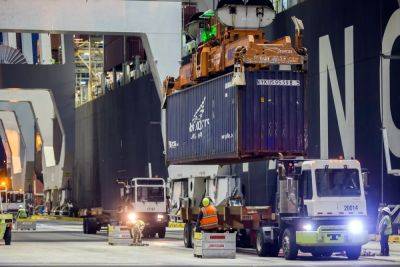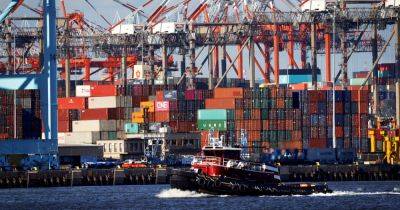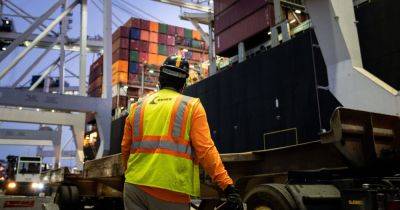How the Dockworkers’ Strike Could Ripple Through the Economy
As dockworkers at East and Gulf Coast ports walk off the job, economists are bracing for the strike to reverberate across the American economy.
The strike, a result of a monthslong impasse between the union representing roughly 45,000 longshoremen and port operators, began at 12:01 a.m. on Tuesday. It will halt almost all activity at some of the busiest ports in the United States, from Maine to Texas. The International Longshoremen’s Association is pushing for wage increases that exceed those offered by the United States Maritime Alliance, the port operators group.
President Biden said on Sunday that he was not planning to invoke the Taft-Hartley Act, a nearly 80-year-old law, to force dockworkers back to work if they strike.
A strike could cost the economy $4.5 billion to $7.5 billion, or a 0.1 percent hit to U.S. annualized gross domestic product, every week as truckers and other workers dependent on the ports are furloughed and manufacturers experience delivery delays, according to analysts at Oxford Economics. While those losses would be reversed once the strike was over, it would take a month to clear the backlog for each week of the strike, the analysts estimated.
Here’s what else to know about the potential economic fallout of the strike.







